 August 30, 2018 John E. Ross, KD8IDJ, Editor
| ||||||
ARRL Headquarters Closed on Labor Day, September 3 ARRL Headquarters will be closed on Monday, September 3, for the Labor Day holiday. There will be no W1AW bulletin or code practice transmissions that day. ARRL Headquarters will reopen on Tuesday, September 4, at 1200 UTC. Have a safe and enjoyable Labor Day weekend! Howard E. Michel, WB2ITX, is New ARRL Chief Executive Officer The ARRL Board of Directors has elected Howard E. Michel, WB2ITX, of Dartmouth, Massachusetts, to be ARRL's new Chief Executive Officer. He will start on October 15. Michel (rhymes with "nickel") is currently Chief Technology Officer at UBTECH Education, and Senior Vice President of UBTECH Robotics, a $5 billion Shenzhen, China, artificial intelligence and robotics company. As the Chief Technology Officer at UBTECH Education, Michel helped build this company from a startup in China to $100 million in valuation.
Michel was first licensed as WN2ITX when he was about 16 and upgraded to General and Advanced within a year. He earned his Amateur Extra-class license in 2000. "I've operated CW/AM/FM/SSB/digital on 80/40/20/15/10/2, on equipment that I have either built, repaired, or modified," he said. ARRL President Rick Roderick, K5UR, said, "We are excited to have someone of Howard's qualifications to lead this organization. Howard's management experience, along with his experience at leading a membership-driven association, makes him an ideal person to move this organization forward." In 2015, Michel served as president and CEO of the Institute of Electrical and Electronics Engineers (IEEE), a volunteer position. "In any large membership-led organization such as ARRL, its members and volunteers are its greatest asset, and a good staff-volunteer relationship is crucial to its success," Michel said. "I intend to build on this relationship and multiply and amplify the efforts of both staff and volunteers in furthering ARRL's goals to advance the art, science, and enjoyment of Amateur Radio." Michel is a retired US Air Force officer, having served as a pilot, satellite launch director, engineer, and engineering manager. During his time in the military, wherever he could set up an antenna, he took the opportunity to operate.
His noteworthy academic background further includes current service as a visiting professor in the Department of Electrical and Electronic Engineering Science at the University of Johannesburg in South Africa. Previously, he was on the faculty of the University of Massachusetts Dartmouth and of the University of Dayton. Michel says that some of his favorite activities include attending hamfests to find old stuff to repair or repurpose, contest operating, and DXing, especially on 80 and 40 meters. He is a Life Member of the Southeastern Massachusetts Amateur Radio Association. Michel will succeed Barry J. Shelley, N1VXY, who had been serving as ARRL's CEO since January, following the resignation of Tom Gallagher, NY2RF. Shelley previously served ARRL's Chief Financial Officer since 1992. FCC Sticks by Prescribed Page Limit in Denying Request in Radio Amateur's Appeal In an August 24 Order, the FCC denied a request by William F. Crowell, W6WBJ (ex-N6AYH), of Diamond Springs, California, for permission to file an appeal that would exceed the page length prescribed by FCC rules. "We find that Crowell has not shown good cause for exceeding the prescribed page limit," said the Order, signed by Linda L. Oliver, Chief of the Administrative Law Division in the FCC Office of General Counsel. "Crowell's request indicates that he intends to appeal the order by Chief Administrative Law Judge (ALJ) Richard L. Sippel dismissing his renewal application for Amateur Radio license W6WBJ and terminating the proceeding. Under the Commission's rules, appeals of an ALJ's dismissal order are limited to 25 pages."
According to the Order, under FCC rules, requests to exceed prescribed page limits are not routinely granted. "Our examination of the ALJ's brief, six-page Order, which Crowell seeks to appeal, does not suggest that the issues involved here are unusually complex," Oliver said. "His conclusory assertions to the contrary do not persuade us otherwise." In a July 9 Order, Sippel terminated Crowell's decade-old license renewal application upon a motion by Enforcement Bureau Chief Rosemary C. Harold. Sippel's Order followed Crowell's refusal to appear in Washington, DC, for a hearing to consider not just his license renewal but related enforcement issues dating back 15 years or more. Crowell was fined $25,000 in 2016 for intentionally interfering with the transmissions of other radio amateurs and transmitting prohibited communications, including music. The FCC said Crowell did not deny making the transmissions but argued, in large part, that those transmissions were protected by the First Amendment of the Constitution. The FCC turned away that assertion. The US Department of Justice decided not to prosecute the case. Crowell may continue to operate until the final disposition of his license renewal application. His license expired in 2007. An Amazing Recovery: ARISS Packet System Revives Similar to the AO-7 satellite resurrection several years ago, the Amateur Radio on the International Space Station (ARISS) packet radio system on the International Space Station (ISS) has begun working again. NASA ISS Ham Radio Project Engineer Kenneth Ransom, N5VHO, said over the weekend that reports he'd received indicated that the NA1SS packet signal returned in mid-August.
The packet signal on 145.825 MHz has been copied in Europe, South America, India, and elsewhere. In another August 25 post, Mark Pisani, KK6OTJ, reported copying the packet system during an 18° pass over southern California and said he worked KB6LTY through the system. "Heard over Patagonia Argentina!" Francisco Rodriguez, LU2WBA, enthused in a post on August 24 at 2323 UTC. "Welcome back!" An August 17 post from Marco Antonio, PU2MUS, in Brazil indicated that the system was not active at that time. Earlier this summer, ARISS hardware team members on the ground reported that they were able to locate a functional duplicate of the ISS packet module that had been in use on the ISS for 17 years before it failed more than a year ago. ARISS has expressed hope that the new packet system hardware could be online again by the end of November. The Doctor Will See You Now! "Antennas and Wind" is the topic of the latest (August 30) episode of the "ARRL The Doctor is In" podcast. Listen...and learn!
Every 2 weeks, your host, QST Editor-in-Chief Steve Ford, WB8IMY, and the Doctor himself, Joel Hallas, W1ZR, will discuss a broad range of technical topics. You can also email your questions to doctor@arrl.org, and the Doctor may answer them in a future podcast. Enjoy "ARRL The Doctor is In" on Apple iTunes, or by using your iPhone or iPad podcast app (just search for "ARRL The Doctor is In"). You can also listen online at Blubrry, or at Stitcher (free registration required, or browse the site as a guest) and through the free Stitcher app for iOS, Kindle, or Android devices. If you've never listened to a podcast before, download our beginner's guide. ARRL Foundation Announces Dick Warren, K6OBS, Memorial Scholarship The ARRL Foundation has announced that The Dick Warren, K6OBS, Memorial Scholarship will join the growing list of scholarships administered by the ARRL Foundation. Funded through the generosity of the family of Dick Warren, K6OBS, and intended exclusively for educational use, The Dick Warren, K6OBS, Memorial Scholarship will provide assistance with the costs of tuition, room, board, books, and/or other fees essential to the recipient's higher education. The scholarship award will be $500 annually, with the first scholarship expected to be awarded in 2019.
All applicants must hold a valid FCC-issued Amateur Radio license and be attending, either part-time or full-time, a regionally accredited technical school, community college, college, or university in a program leading to an undergraduate degree in education, science, math, engineering, technology, or a health care-related field.
Applicants must demonstrate activity and interest in radio service or some technical proficiency by participating in some form of radio-related activities, such as emergency communication, equipment construction, community radio service, or Scouting. Award preference will go to applicants residing in San Diego and Imperial County of California. If no qualified applicant is identified, the scholarship must be awarded to an applicant residing in California. The ARRL Foundation shall determine the recipients of the award to be the most deserving, depending on personal statements and recommendations and the most promising among the scholarship applicants. The Foundation will manage the assets in the fund, select the scholarship recipient(s), and disperse the award funds directly to the chosen institution of higher learning. If for any reason the scholarship remains unawarded in a given year, funding provided for The Dick Warren, K6OBS, Memorial Scholarship will be carried over to the following year. Ham Radio Equipment for Emergency Communication Delivered in Honduras On August 22, the Honduras National Telecommunications Commission (CONATEL) delivered Amateur Radio equipment to COPECO -- a government disaster-organization coordination agency -- for use in an International Telecommunication Union (ITU) pilot project that aims to take wider advantage of the Winlink HF email system for emergency communication. The ITU pilot project includes Central America and the Caribbean with the goal of achieving implementation throughout South America. Winlink already enjoys wide usage in North America by Amateur Radio Emergency Service (ARES) teams. ITU donated the equipment.
"The most important thing is that CONATEL, COPECO, and radio amateurs start working with the Winlink tool," said ITU Area D Representative Miguel Alcaine. "I am very happy to know that we are doing something before disaster strikes." The donation consists of an HF radio, a VHF radio, a multiband dipole, a VHF antenna, an automatic antenna tuner, a modem, and coaxial cable. National Commissioned Minister of COPECO Lisandro Rosales said that one of his agency's objectives has been to strengthen information and communication technologies (ICTs) -- a primary ITU initiative. "We have realized that telecommunications is a key element in order to give early warning and to warn about imminent danger, or to coordinate assistance or reconstruction activities," Rosales said. "This program and radio equipment will allow first responders that work during emergencies to send information [via HF], when telephone and digital communications collapse or if there are power outages," commented Omar Paredes, HR1OP, secretary of Club de Radio Aficionados Central de Honduras (CRACH). -- Thanks to IARU Region 2 CITEL Addresses Telecommunications Initiatives Prior to ITU Plenipotentiary The Inter-American Telecommunications Commission (CITEL), through its Permanent Consultative Committee 1 (PCC.1) -- met last week (August 20 - 24) at Organization of the American States (OAS) headquarters in Washington, DC, to discuss telecommunications regulatory and development issues and to coordinate OAS strategic telecommunications initiatives for establishing positions in advance of the International Telecommunication Union (ITU) Plenipotentiary Conference (PP-18) this fall. At the opening session, OAS General Secretary Luis Almagro identified the approval of a revised International Amateur Radio Permit (IARP) as one positive result coming out of the OAS General Assembly earlier this year, and noted that representatives of the Dominican Republic and Argentina have signed off on the revision. Almagro encouraged more countries to adopt and implement the protocol.
CITEL Executive Secretary Oscar Leon also stressed the importance of signing the revision through OAS and promoting national ratification according to the local rulemaking process. ITU Regional Director to the Americas Bruno Ramos also cited the ongoing ITU-coordinated project of an alternative emergency communication network involving Amateur Radio, especially in the Caribbean region, fulfilling the OAS strategic objectives. Representing the International Amateur Radio Union (IARU) at the meeting was Flávio Archangelo, PY2ZX, who is IARU Region 2 Coordinator for CITEL. The ITU Plenipotentiary Conference is the top policy-making body of the ITU. Held every 4 years, the Plenipotentiary Conference sets the Union's general policies; adopts 4-year strategic and financial plans, and elects the ITU's senior management team of the organization, member states of the ITU Council -- which acts as the ITU's governing body between Plenipotentiary Conferences -- and members of the Radio Regulations Board. The 2018 Plenipotentiary Conference will take place October 29 - November 16 in Dubai. -- Thanks to Joaquin Solana, XE1R, IARU Region 2 News Editor YOTA South Africa 2018 Participants Urged to Share What They've Learned The 74 delegates to the Youngsters of the Air (YOTA) South Africa 2018 gathering held in early August in South Africa enjoyed what one participant called "a mind-blowing experience." As the event drew to a close, the event's patron, Gary Immelman, ZS6YI, reminded the participants that they are Amateur Radio's future leaders and urged "By virtue of the fact that you were prepared to come all this way to South Africa and to so enthusiastically participate in this year's YOTA tells me that you are a very dedicated and motivated group of young people," Immelman said. "The enthusiasm and vigor in which you participated in the various activities gives me comfort that the future of Amateur Radio is indeed very bright." Thirteen-year-old Faith Hannah Lea, AE4FH, of Palm Coast, Florida, was the sole International Amateur Radio Union Region 2 (IARU R2) representative at the YOTA gathering. Licensed at age 10 and now holding an Amateur Extra-class license, Faith Hannah is very active on the airwaves and in promoting Amateur Radio via YouTube and elsewhere. Her dad, James Lea, WX4TV, accompanied her to YOTA South Africa 2018.
"Train the trainer" was an overarching theme of YOTA South Africa 2018. At several sessions during the week-long gathering, teams presented ideas on how to leverage their camp experience to help attract other young people to Amateur Radio in their home countries. The young radio amateurs built QRP Labs transceiver kits and kept special event station ZS9YOTA active on SSB, CW, and FT8. Some 20 young camp participants made their first satellite contacts. The group had launched a balloon carrying Amateur Radio (BACAR) -- a high-altitude balloon with radio equipment on board to explore near space. While waiting for the data to return, the YOTA group operated from grid KG43 on multiple satellites, including SO-50, AO-91, and AO-92. A summertime gathering in the past, YOTA South Africa 2018 took place during winter in the Southern Hemisphere in South Africa's Gauteng region.
In Brief...
Bill Sexton, N1IN/AAR1FP, has become the second of five MARS members presented with the Presidential Lifetime Achievement Award. Sexton served for many years as US Army MARS Public Information Officer. The President's Volunteer Service Award is a civilian honor, established to honor volunteers working through the President's Council on Service and Civic Participation. The Lifetime award recognizes more than 4,000 hours of extraordinary volunteer service. "It is with great pride and pleasure that I announce that Bill Sexton, N1IN/AAR1FP, is one of five MARS members receiving the Presidential Lifetime Achievement Award," said MARS Region 1 Director Robert M. Mims, WA1OEZ. "Bill has spent countless hours as National Public Information Officer and historian for the Army MARS program." Sexton also wrote An Unofficial History: Army MARS at 90, Helping Protect the Homeland. Army MARS member Dave Popkin, W2CC/AAR2BU, was honored in an earlier presentation. Other US Army MARS members awaiting formal presentation of the Presidential Lifetime Achievement Award are, Steve Hajducek, N2CKH; Neal Morris, K0TIV, and Orlo Brown, K6SUJ.
The K7RA Solar Update Tad Cook, K7RA, Seattle, reports: We just saw 15 straight days with visible sunspots, but it ended on August 29, when the sunspot number fell to zero. According to Spaceweather.com, so far in 2018 we've seen 133 days with no sunspots, compared to 104 days last year. Over the reporting week, the average daily sunspot number rose from 13 to 17.7. Average daily solar flux rose from 67.5 to 70.6, average daily planetary A index from 10.1 to 19.9, and average mid-latitude A index from 10.4 to 13.4.
Predicted solar flux is 70 on August 30 - September 6; 69 on September 7; 67 on September 8-9; 68 on September 10-11; 69 on September 12; 70 on September 13-22; 69 on September 23-25; 67 and 68 on September 26-27; 67 on September - October 6; 68, 68, and 69 on October 7-9, and 70 on October 10-13. Predicted planetary A index is 8 on August 30; 5 on August 31 - September 2; 8 on September 3-4; 5, 5, and 8 on September 5-7; 5 on September 8-10; 15 on September 11-12; 12 on September 13-14; 10, 12, and 8 on September 15-17; 5 on September 18-21; 12, 18, 12, 10, 8, and 5 on September 22-27; 8 on September 28-29; 5 on September 30 - October 3; 8 on October 4; 5 on October 5-7; 18, 15, 15, 12, 10, and 10 on October 8-13. Sunspot numbers for August 23 - 29 were 15, 29, 31, 26, 12, 11, and 0, with a mean of 17.7. The 10.7-centimeter flux was 69.5, 72.4, 71.6, 71.1, 69.6, 69.8, and 70.5, with a mean of 70.6. Estimated planetary A indices were 5, 5, 11, 76, 26, 10, and 6, with a mean of 19.9. Estimated mid-latitude A indices were 5, 7, 12, 34, 20, 9, and 7, with a mean of 13.4. Share your reports or propagation observations. Just Ahead in Radiosport
See the ARRL Contest Calendar for more information. For in-depth reporting on Amateur Radio contesting, subscribe to The ARRL Contest Update via your ARRL member profile email preferences. Upcoming ARRL Section, State, and Division Conventions
Find conventions and hamfests in your area.
. .
Subscribe to...
Free of charge to ARRL members...
| ||||||
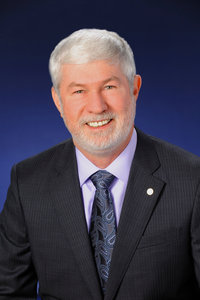 "I have Amateur Radio to thank for starting me on a very successful career, and I'm excited about the opportunity to further ARRL's goals as CEO. Leading the League will allow me to 'give back' to a great community and provide a similar opportunity for future generations," Michel said. "I have been a licensed ham for 50 years, and I've seen many changes in the hobby. One of my top priorities as CEO will be to develop new products and services so all hams, whatever their license class or interest, find value in League membership," he added.
"I have Amateur Radio to thank for starting me on a very successful career, and I'm excited about the opportunity to further ARRL's goals as CEO. Leading the League will allow me to 'give back' to a great community and provide a similar opportunity for future generations," Michel said. "I have been a licensed ham for 50 years, and I've seen many changes in the hobby. One of my top priorities as CEO will be to develop new products and services so all hams, whatever their license class or interest, find value in League membership," he added.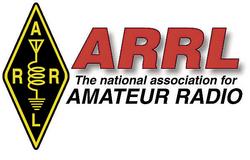 Michel earned his bachelor's degree in electronic engineering from New Jersey Institute of Technology, a master's degree in electronic and computer engineering from the University of Massachusetts, and a master's degree in systems management from the University of Southern California. He holds a PhD in computer science and engineering from Wright State University.
Michel earned his bachelor's degree in electronic engineering from New Jersey Institute of Technology, a master's degree in electronic and computer engineering from the University of Massachusetts, and a master's degree in systems management from the University of Southern California. He holds a PhD in computer science and engineering from Wright State University.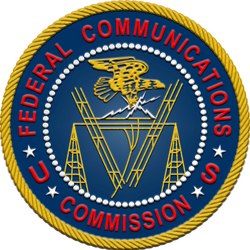 Crowell explained in his July 30 request that his appeal "involves approximately 16 important issues of Constitutional, statutory, and regulatory interpretation applicable to the Amateur Radio Service, which have never been decided by the Commission or by the courts." He argued that 25 pages would be insufficient and asked for an additional 10 pages.
Crowell explained in his July 30 request that his appeal "involves approximately 16 important issues of Constitutional, statutory, and regulatory interpretation applicable to the Amateur Radio Service, which have never been decided by the Commission or by the courts." He argued that 25 pages would be insufficient and asked for an additional 10 pages.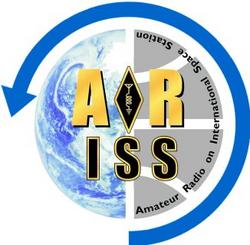 "No idea how long it will last, given the degrading state of the current hardware. The longer it lasts, the better," he said. Ransom said the revived system will fill the gap until a replacement packet module is flown to the ISS later this year and is installed by the crew on a time-available basis.
"No idea how long it will last, given the degrading state of the current hardware. The longer it lasts, the better," he said. Ransom said the revived system will fill the gap until a replacement packet module is flown to the ISS later this year and is installed by the crew on a time-available basis.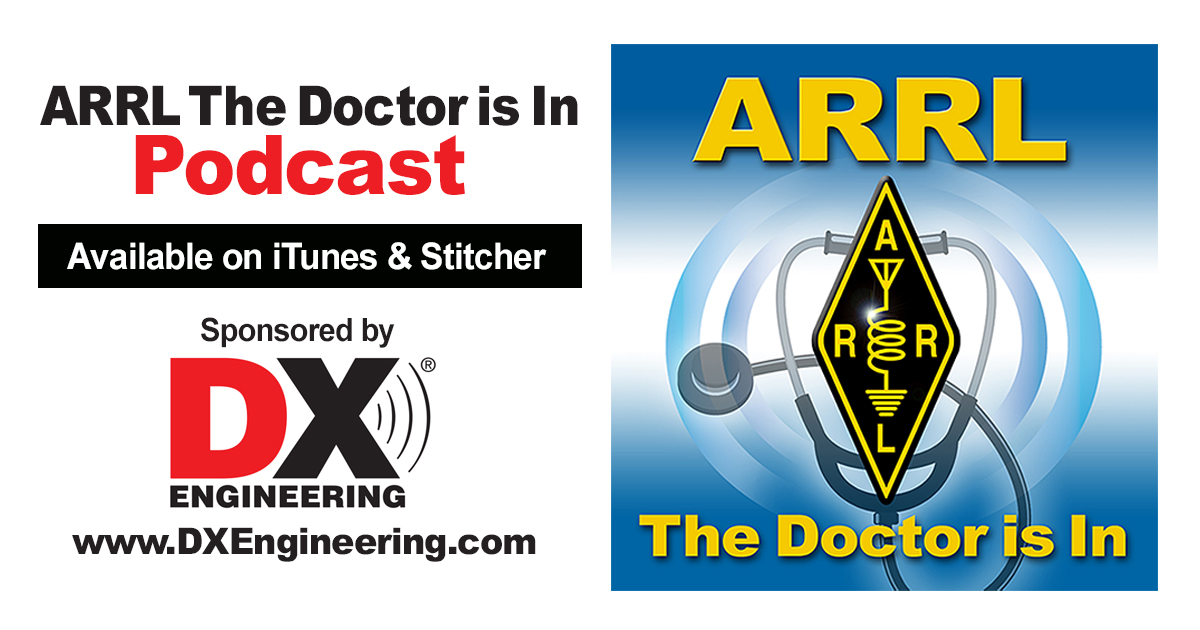 Sponsored by
Sponsored by .jpg) Applicants must be US citizens, but without regard to gender, race, national origin, or disability. The applicant must be performing at a high academic level or be an at-risk youth with at least two counselor or teacher recommendations describing why the applicant is deserving.
Applicants must be US citizens, but without regard to gender, race, national origin, or disability. The applicant must be performing at a high academic level or be an at-risk youth with at least two counselor or teacher recommendations describing why the applicant is deserving. 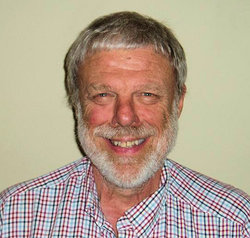
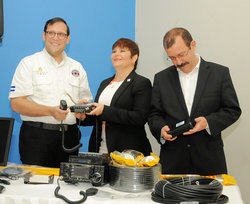
-2.jpg)
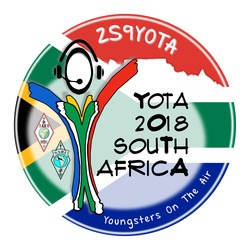 them to become leaders in their respective organizations at home. Campers at YOTA South Africa 2018, which was sponsored by the South African Radio League (
them to become leaders in their respective organizations at home. Campers at YOTA South Africa 2018, which was sponsored by the South African Radio League (.jpg)
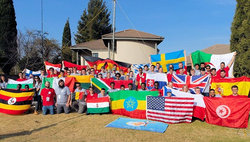 Immelman said the intent of YOTA South Africa 2018 was to expose participants to relatively "high-intensity Amateur Radio fun" within a diverse environment. "I believe you have all got a taste of what could be done in our hobby and especially what can be built upon to make YOTA of the future an ever-changing and even better experience than the last," he added. So far, no one has applied to host the 2019 YOTA event. -- Thanks to SARL. Some information from AMSAT News Service.
Immelman said the intent of YOTA South Africa 2018 was to expose participants to relatively "high-intensity Amateur Radio fun" within a diverse environment. "I believe you have all got a taste of what could be done in our hobby and especially what can be built upon to make YOTA of the future an ever-changing and even better experience than the last," he added. So far, no one has applied to host the 2019 YOTA event. -- Thanks to SARL. Some information from AMSAT News Service. The FCC has launched a new podcast series,
The FCC has launched a new podcast series, 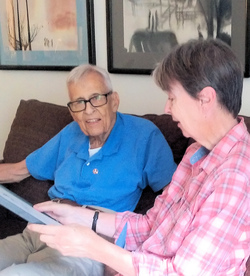
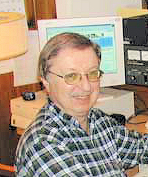 Former Wisconsin ARRL Section Manager Don Michalski, W9IXG, of Madison, died on August 11. He was 77. Michalski led the Wisconsin Section from 1999 until 2015 and also served as an ARRL Official Observer and as a Technical Specialist. He was a technical specialist for Wisconsin Emergency Communications (
Former Wisconsin ARRL Section Manager Don Michalski, W9IXG, of Madison, died on August 11. He was 77. Michalski led the Wisconsin Section from 1999 until 2015 and also served as an ARRL Official Observer and as a Technical Specialist. He was a technical specialist for Wisconsin Emergency Communications (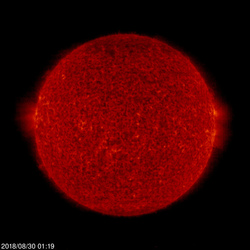 According to
According to 







